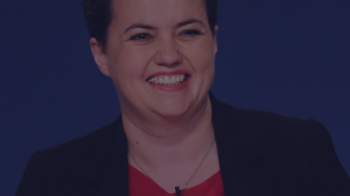Leadership Series: Listening is the key to greater connection
Posted on Friday 16 April 2021 | IAB UK
Former hostage and crisis negotiator, John Sutherland, joined our fourth Leadership Series session to share his experiences and advice on how to be a good listener - and why it matters
How can we rediscover the disappearing art of listening? This was the subject of our fourth Leadership Series session with former Met police commander John Sutherland. Having spent 25 years in the police force and written two books - ‘Crossing the Line’ and ‘Blue: A Memoir’ - Sutherland drew on his experience as a hostage and crisis negotiator to explain how we can all benefit from learning to listen better in “a world where too many of us seem to be shouting each other from progressively further apart”. Here’s what we learnt...
Every contact leaves a trace
Sutherland started by sharing one of the most important lessons from his career: Every contact leaves a trace. He explained: “Every time two people come into contact with each other, a trace is left - whether that’s my other half or standing next to someone at a supermarket. Whether we speak to each other or not, smile or scowl… a trace is left.” To this end, Sutherland highlighted the fundamental importance of how we treat other people: “The art of negotiation begins with the fundamental belief that people are precious and the way we treat them matters more than anything else.” Far from being the swashbuckling Hollywood portrayal of a hostage negotiator, the reality of the job is about helping someone in need, making a connection and saving a life. Achieving that is rooted in good listening, he explained.
Listening requires the head, heart & gut
So what does good listening sound like? “Listening is an incredibly active thing, it’s not a passive undertaking,” Sutherland said. Take the Chinese symbol for listening which includes reference to the ears, the eyes and the heart. “The entire process of listening needs to be a wholehearted one. It requires all of us, the entirety of us”. For Sutherland, the Listening Ladder provides a framework for listening. Its steps include...
-
Empathy: Understanding the world from someone else’s point of view is fundamental to being a good listener. As Sutherland put it, “empathy is about finding the echoes of another person in yourself”
-
EQ & SQ: We all know about IQ, but the lesser-known EQ and SQ are key to listening. That’s Emotional Intelligence and Spiritual Intelligence, where you draw on instinct and wisdom or, as Sutherland said, “listening that requires both head and heart and gut”
-
Trust: Negotiators never lie, Sutherland explained, because trust is essential to their work. Without trust, the fundamental role of the listener is undermined
-
Influence: With trust comes influence and with influence you can change someone’s course of action. Discussing his work as a negotiator, Sutherland described this as persuading someone to step back from the edge
Essentially, listening is about “so much more than just the physical process of taking in sound via our ears”. It’s about “looking to draw the other person out of themselves” and “giving them permission to tell their story”.
A human connection = a human solution
“The skills you learn as a hostage negotiator are the skills that you need as a parent,” Sutherland joked. But on a more serious note, he believes that the art of listening is something that the world is in urgent need of right now. “In 2021, we’re a year into the pandemic and there is an urgent, desperate need for us to find ways to reconnect with one another… that begins with listening,” he explained. In short, “finding of a human connection is the beginning of the finding of a human solution” and that there is huge power in storytelling and encouraging people to share. “Sometimes it feels to me like we are in such a hurry that people no longer seem to matter,” he said. “We need to find a way to stop and pause for long enough to ask the questions and to hear the answer.”
Related content
Bruce Daisley: Creating a sense of ‘togetherness’ is critical
Learn moreMartin Siegert on climate change: “Advertising is really critical for our future”
Learn moreNigel Owens: The biggest challenge of my life was accepting myself
Learn moreRuth Davidson: “The most important resource in any organisation is people”
Learn more
Rediscover the joy of digital advertising
Champion connections instead of clicks. Capture audiences' imaginations, not just their attention. Boldly find your own beat instead of letting tech set the pace. It’s time to rediscover the joy of digital.



